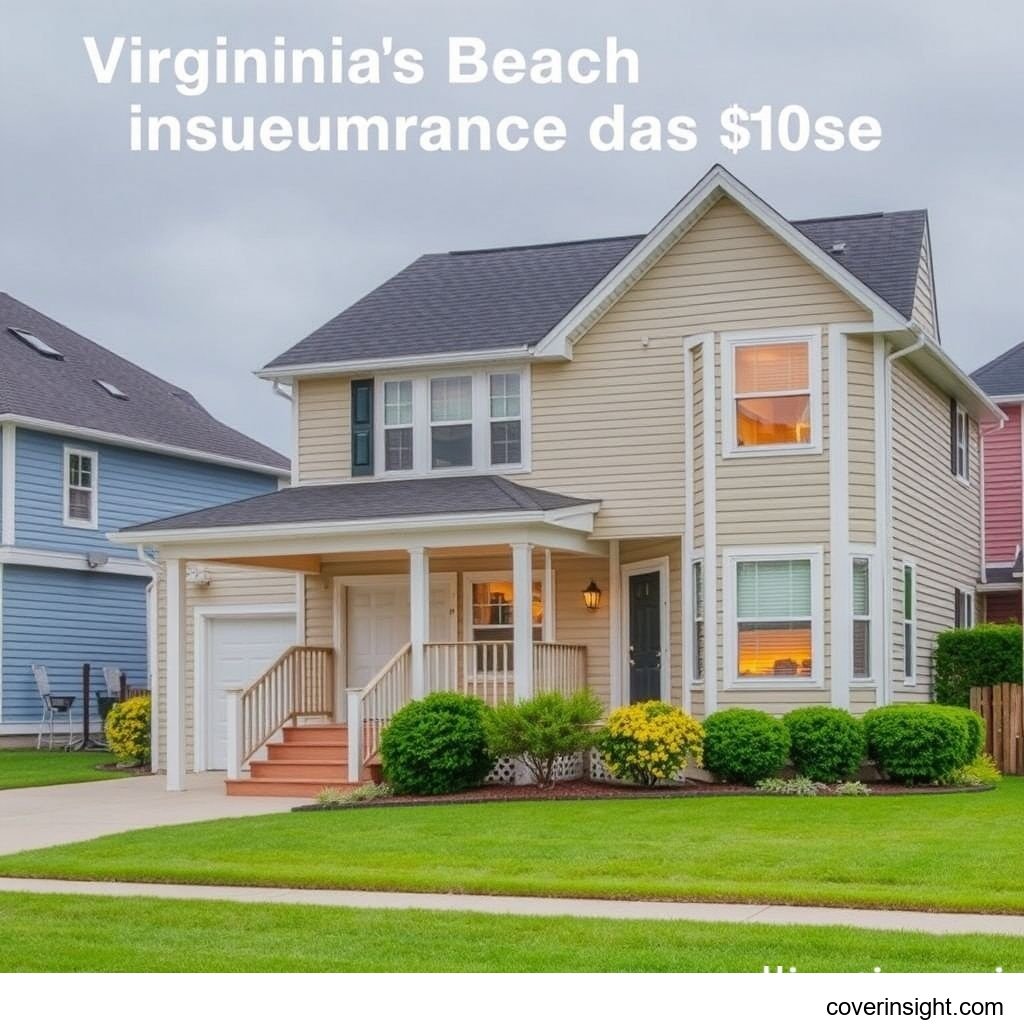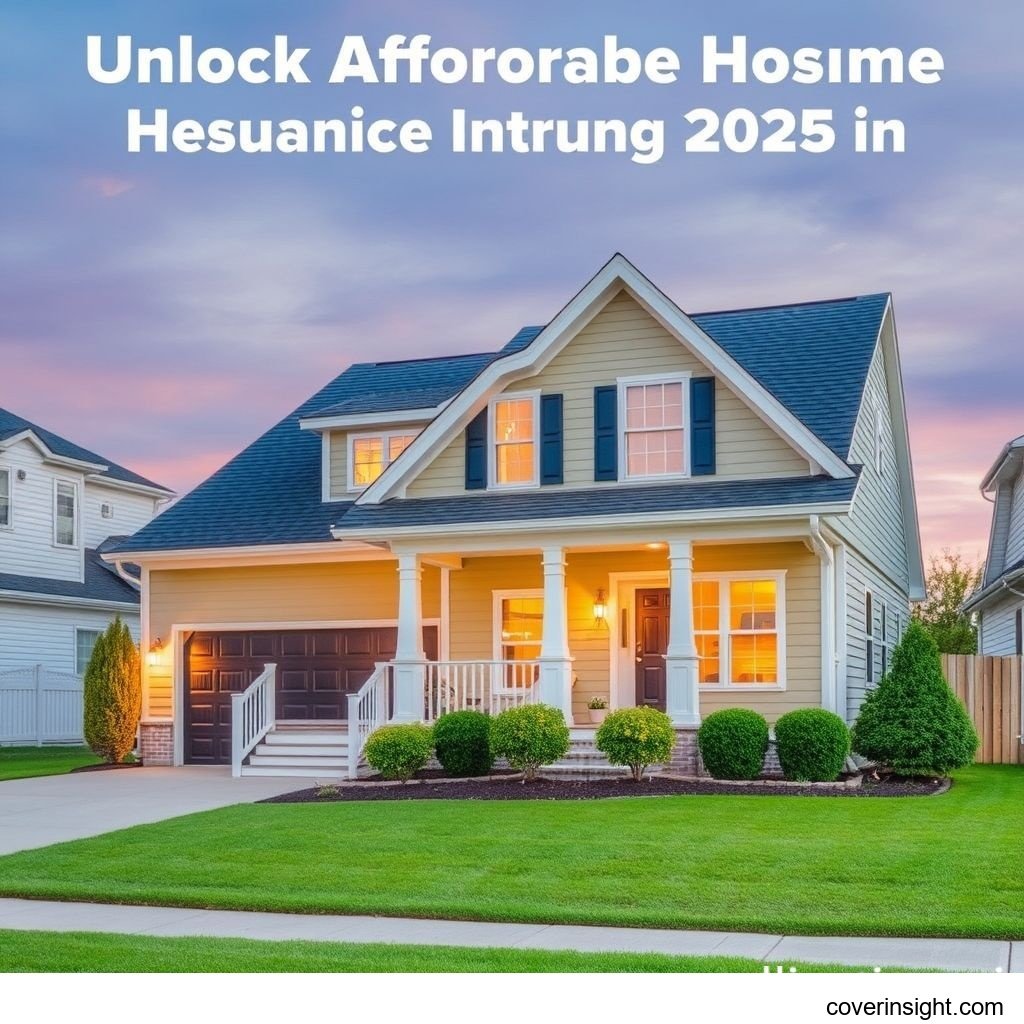Introduction
The notion of finding the Best Home Insurance Virginia Beach VA isn't just about ticking a box; it's about safeguarding your most significant asset in a dynamic coastal environment. As we look ahead to Smart 2025 Costs, understanding the landscape of home insurance becomes ever more crucial. Nationally, home insurance premiums have been on an upward trajectory, influenced by a cocktail of factors including increasing natural disaster frequency, rising reconstruction costs, and inflationary pressures. For homeowners in the United States, budgeting for this essential protection means navigating an average annual premium that could easily be in the thousands, depending on location and risk. In a place like Virginia Beach, where coastal living offers immense charm but also unique risks, thoughtful insurance planning isn't just wise—it’s absolutely essential.
Coverage Details
Securing comprehensive home insurance means knowing what you're buying into. It’s not just a single policy; it’s a mosaic of coverages designed to protect you from a wide array of potential financial setbacks.
What’s Included
A typical homeowners insurance policy, often referred to as an HO-3, provides a robust safety net. It usually encompasses:
-
Dwelling Coverage: This is the core of your policy, protecting the physical structure of your home, including attached garages, decks, and built-in appliances, against covered perils. Think of it as protecting the bricks and mortar themselves.
-
Other Structures Coverage: Detached garages, sheds, and fences usually fall under this category, typically covered for about 10% of your dwelling coverage.
-
Personal Property Coverage: This protects your belongings – furniture, electronics, clothing, and more – whether they're inside your home or elsewhere in the world. It’s often set at 50-70% of your dwelling coverage. For high-value items like jewelry or fine art, you might need a separate rider or endorsement.
-
Liability Protection: This is your shield against lawsuits if someone is injured on your property or if you accidentally cause damage to someone else's property. It covers legal fees and damages.
-
Additional Living Expenses (ALE): Should a covered peril render your home uninhabitable, ALE coverage helps pay for temporary housing, food, and other increased living costs while your home is being repaired. It’s a real lifesaver when you're unexpectedly displaced.
Common Exclusions
While comprehensive, no policy covers everything. It’s vital to be aware of the typical exclusions that could leave you vulnerable:
-
Flooding: This is a big one, especially for coastal areas like Virginia Beach. Standard policies do not cover flood damage. For this, you’ll need a separate flood insurance policy, typically available through the National Flood Insurance Program (NFIP).
-
Earthquakes: Similar to floods, earthquake damage is usually excluded and requires a separate policy or endorsement. While less common in Virginia, smaller tremors do occur.
-
Neglect and Lack of Maintenance: Insurance is for sudden, accidental damage, not issues arising from ongoing neglect, like a roof that leaks because it was never repaired.
-
Mold (unless caused by a covered peril): If mold results from a sudden pipe burst, it might be covered, but mold from chronic dampness is generally not.
-
War and Nuclear Hazard: These catastrophic events are universally excluded.
-
Intentional Damage: Deliberately damaging your own property, or damage caused by illegal activities, is not covered.
Cost Analysis
Understanding the factors that shape your premium is key to finding Smart 2025 Costs for your Virginia Beach home insurance.
Price Factors
Your premium is determined by a complex algorithm that considers numerous variables:
-
Location, Location, Location: This is paramount, especially in Virginia Beach. Properties closer to the coast or in designated flood zones will inevitably face higher premiums due to increased risk of storm surge and hurricane damage. For instance, the City of Virginia Beach’s Department of Planning & Community Development highlights that a significant portion of the city is within a Special Flood Hazard Area, a critical factor for insurers.
-
Home Characteristics: The age of your home, its construction materials (brick vs. wood frame), roof type, and its proximity to a fire hydrant or fire station all play a role. Older homes often cost more to insure due to outdated systems or higher repair costs.
-
Coverage Limits and Deductible: Opting for higher dwelling coverage or lower deductibles (the amount you pay out-of-pocket before insurance kicks in) will increase your premium.
-
Claims History: A history of multiple claims can significantly raise your rates, as insurers see you as a higher risk.
-
Credit Score: In many states, including Virginia, insurers use credit-based insurance scores as a predictor of risk, with higher scores often correlating to lower premiums.
-
Safety Features: Homes equipped with modern security systems, smoke detectors, and hurricane-resistant windows can often qualify for discounts.
Saving Tips
It’s not just about finding the cheapest policy, but the best value for your needs. Here are some smart ways to save:
-
Bundle Your Policies: Many insurers offer discounts if you combine your home and auto insurance policies. It’s a common tactic, and can lead to significant savings.
-
Increase Your Deductible: If you can comfortably afford a higher deductible, doing so will lower your annual premium. Just ensure you have enough in savings to cover that amount if disaster strikes.
-
Improve Home Security: Installing a monitored alarm system, smart home devices, and reinforced doors/windows can earn you discounts.
-
Shop Around Annually: Don't be afraid to compare quotes from multiple insurers every year or two. The market changes, and a new provider might offer better rates. Tools and resources like those found on "Virginia Beach Home Insurance Cost: Smart Savings for 2025" can be incredibly helpful.
-
Ask for Discounts: Always inquire about discounts for which you might be eligible, such as those for being a non-smoker, having a new roof, or being a long-term customer.
-
Maintain Good Credit: A strong credit history can directly impact your insurance score, leading to lower premiums.
-
Consider Mitigation: For homeowners in coastal areas, investing in mitigation efforts like hurricane shutters or elevated foundations can not only protect your home but also potentially reduce your premiums. For example, after Hurricane Florence in 2018, many homeowners along the Southeast coast, including parts of Virginia, found that homes with fortified features sustained less damage and were eligible for better insurance terms going forward. This proactive approach paid dividends.
FAQs
How much does home insurance cost?
The cost of home insurance varies widely based on the factors mentioned above. Nationally, the average can range from $1,500 to over $3,000 annually. In Virginia Beach, due to its coastal exposure and the associated risks of hurricanes and flooding, premiums might lean towards the higher end of the spectrum, especially for properties in higher-risk zones. It's not uncommon for annual premiums to range from $1,800 to $4,000 or more, depending on the specific property and coverage chosen.
What affects premiums?
Premiums are affected by your home's location (especially its proximity to coastal or flood zones), its age and construction type, the local crime rate, your claims history, your credit score, the amount of coverage you select, and the deductible you choose. Natural disaster frequency in your area also plays a significant role; for Virginia Beach, hurricane activity is a prime example.
Is it mandatory?
While no state law directly mandates you carry home insurance, if you have a mortgage, your lender almost certainly will require it. This is because the home serves as collateral for your loan, and the lender wants to ensure their investment is protected. Without a mortgage, it’s not legally mandatory, but going without coverage is an immense financial risk.
How to choose?
Choosing the best policy involves comparing quotes from multiple reputable insurers. Look beyond just the price; examine the coverage limits, deductibles, customer service reputation, and financial stability of the company. Read reviews, ask for recommendations, and consider checking resources like "National Association of Insurance Commissioners" for consumer guides or your "State Insurance Departments" for regulatory information. Evaluate your specific needs—do you need extra flood coverage? Is your personal property particularly valuable? – and tailor your policy accordingly. For broader insights, you might consult "Insurance Resources Global" to understand global trends impacting local markets.
Consequences of no coverage?
The consequences of no coverage can be financially devastating. If your home is damaged by a fire, hurricane, or other peril, you would be solely responsible for the entire cost of repairs or rebuilding. This could amount to hundreds of thousands of dollars, potentially wiping out your savings or forcing you into significant debt. Furthermore, without liability coverage, you would be personally responsible for legal fees and damages if someone were injured on your property, a risk no homeowner should take. It's a gamble that, in my experience, rarely pays off. For more general insights into why insurance is vital for managing risk, resources like "US Insurance Home" can offer a broader perspective.
Author Insight & Experience
Based on my experience and observations in the insurance sector, many homeowners in coastal areas often overlook the critical importance of flood insurance until it's too late. It’s easy to assume standard home insurance covers everything, but the reality is that the most common natural disaster for regions like Virginia Beach – flooding – requires a separate policy. As someone who has seen the aftermath of coastal storms, I can attest that investing in comprehensive coverage, including those often-forgotten riders like flood insurance, is not an expense but a crucial investment in peace of mind. Don't wait until the next named storm is bearing down to review your policy. A proactive approach now can save you a mountain of heartache and financial strain later.








Comments